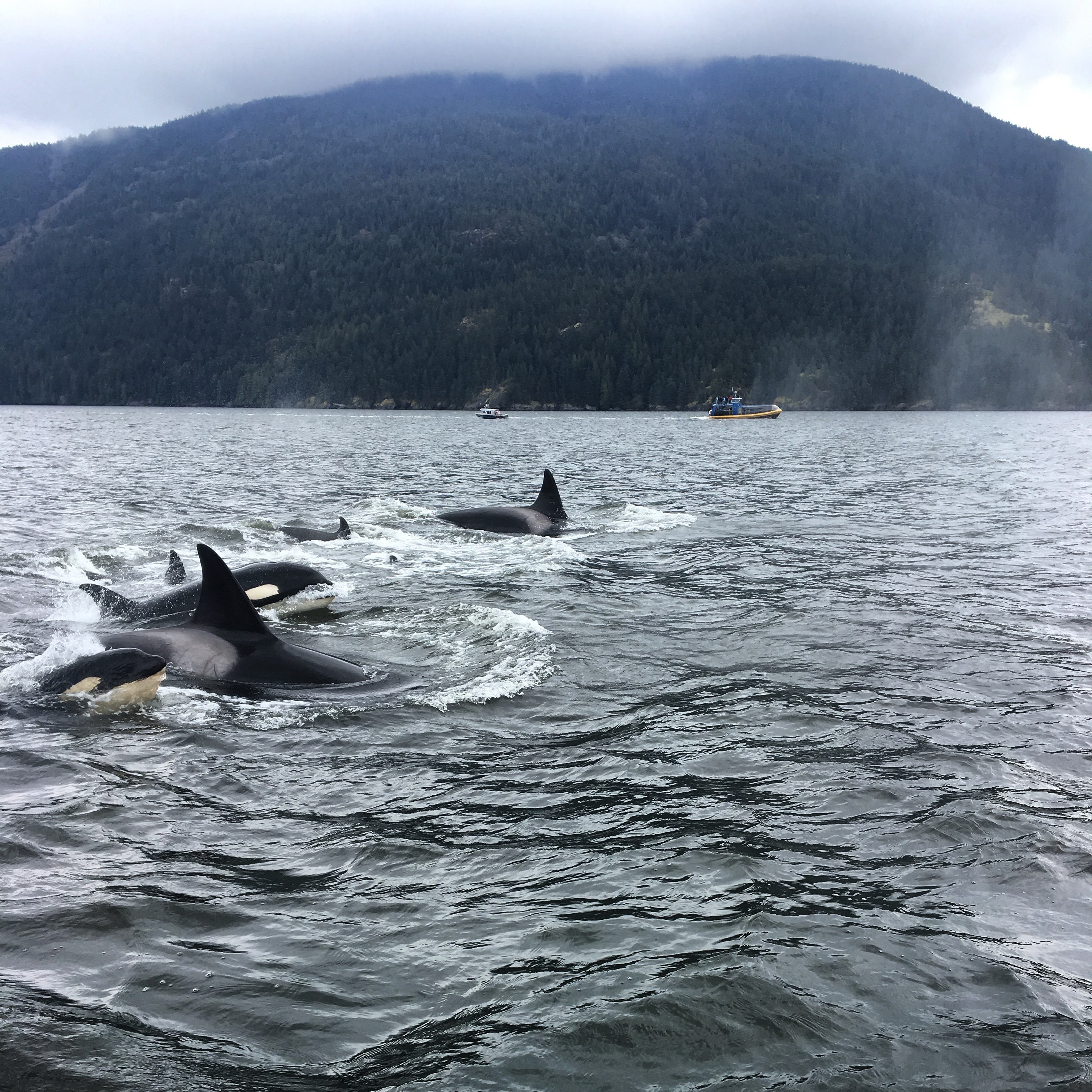When I found out I was going to a conference in Vancouver, I knew I had to do one thing – orca ecotourism. Seeing wild orcas has been on my bucket list for a VERY long time. As a little girl, I would read a National Geographic picture book over and over again on orcas with my dad. I can still remember the page full of McDonald’s burgers to demonstrate how much they could eat in one day (if they ate hamburgers). Months before I went to Vancouver, I made sure to book a whale watching trip.
Choosing a Company for Orca Ecotourism
Ethical wildlife tourism is a high priority for me. Before I chose my whale watching company, I read reviews on Trip Advisor and scoured websites. I would rather not see an animal in the wild at all if it involves great stress to the animal or negatively impacts their populations or behavior (for my guidelines, read “5 Guidelines for Ethical Wildlife Tourism“). I loved the company I chose and had a truly incredible experience, which is why I am writing about it here! And to show you amazing orca photos.
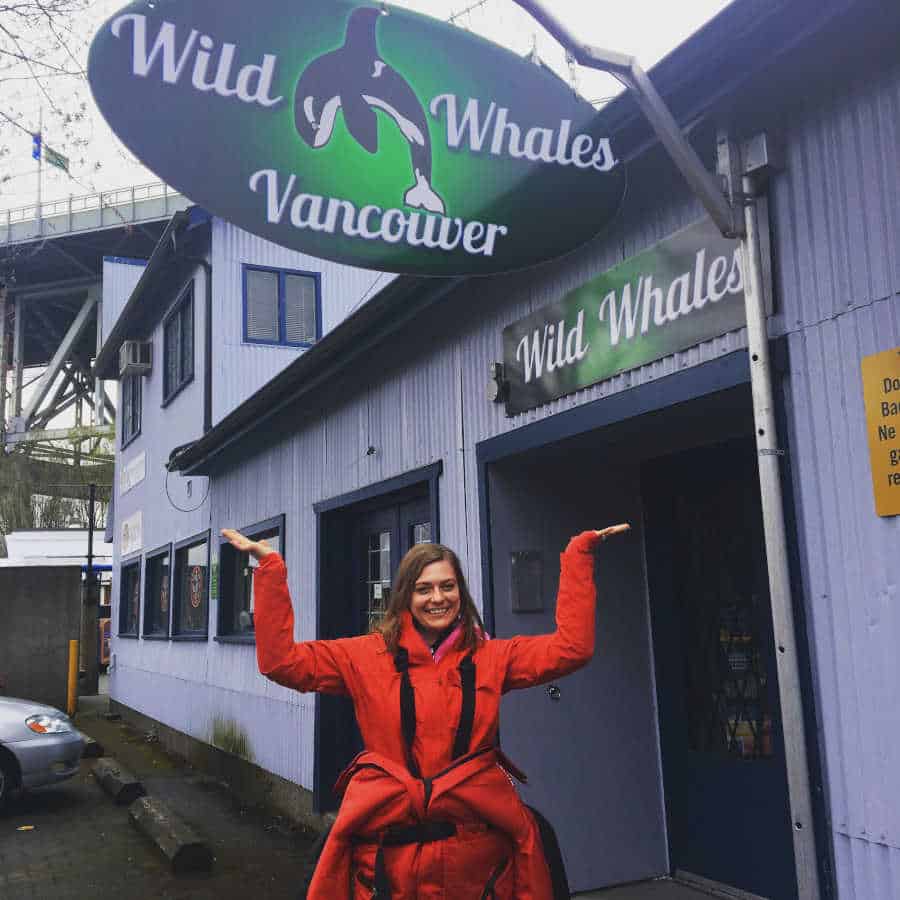
I chose the Wild Whales Vancouver. I loved that their website highlights ethical whale watching, research, and education. Here are some of the factors that sold me on their About Us page:
- “Wild Whales Vancouver is a strong supporter and member of the Pacific Whale Watchers Association (PWWA). The PWWA is the result of collaboration between Canadian and American whale-watching companies committed to research, education and responsible wildlife viewing.”
- “The PWWA has developed a set of “Best Practices” guidelines for all boats observing wildlife.”
- “the ‘Be Whale Wise’ guidelines published by the US National Oceanic and Atmospheric Administration (NOAA) and are designed to minimize the ecological impacts of whale-watching”
- “Wild Whales Vancouver support(s) scientific research on Southern Resident Killer Whales to increase awareness, understanding and ultimately to conserve these unique mammals.”
Another sign of a good wildlife tourist operation is partnering or supporting research organizations. I love that they mention specific and very specific and credible research organizations.
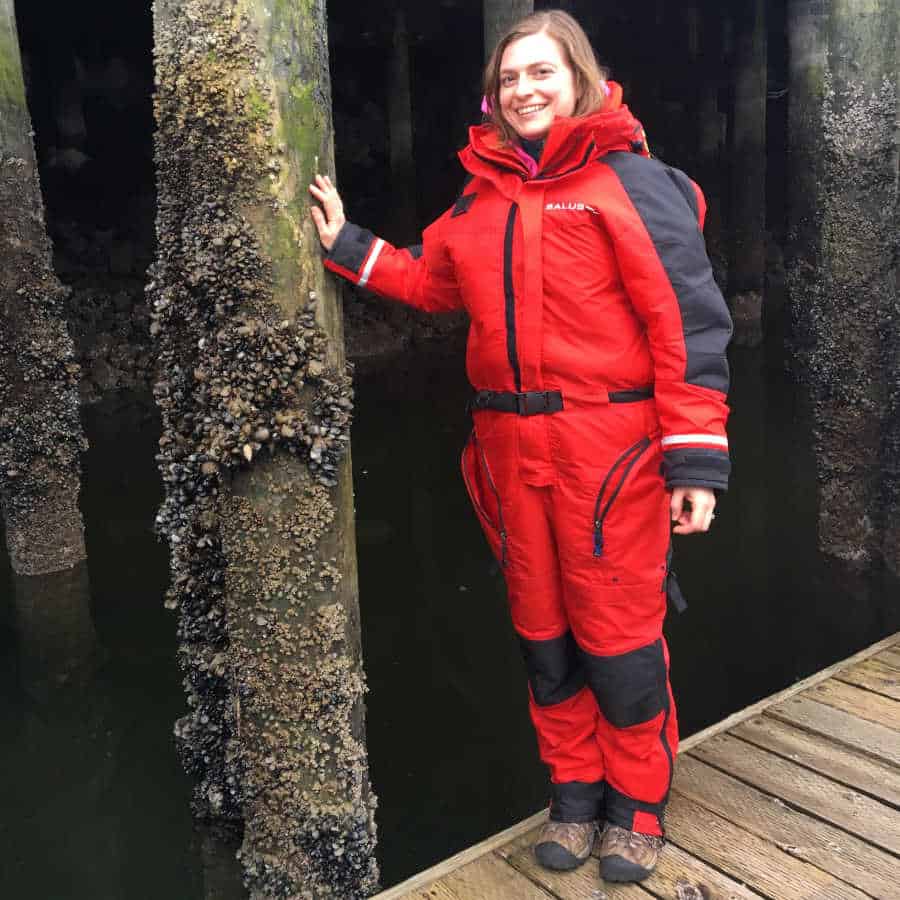
The Orca Ecotourism Adventure
Your whale watching adventure begins at their office at Granville Island. This is where you check in, get a debrief of what to expect, and suit up. It is super cold (and wet from boat spray) out on the water so they give you this super sexy jumpsuit to wear. It reminded me of my snowsuits from Buffalo winters as a kid. Don’t let the jumpsuit fool you though; it definitely adds warmth, but you will still need to bring warm clothes. I wore several fleeces, a fleece hat, and gloves in addition to the suit. I tend to run cold, but I was happy as a clam in my outfit even with the cold winds and water.
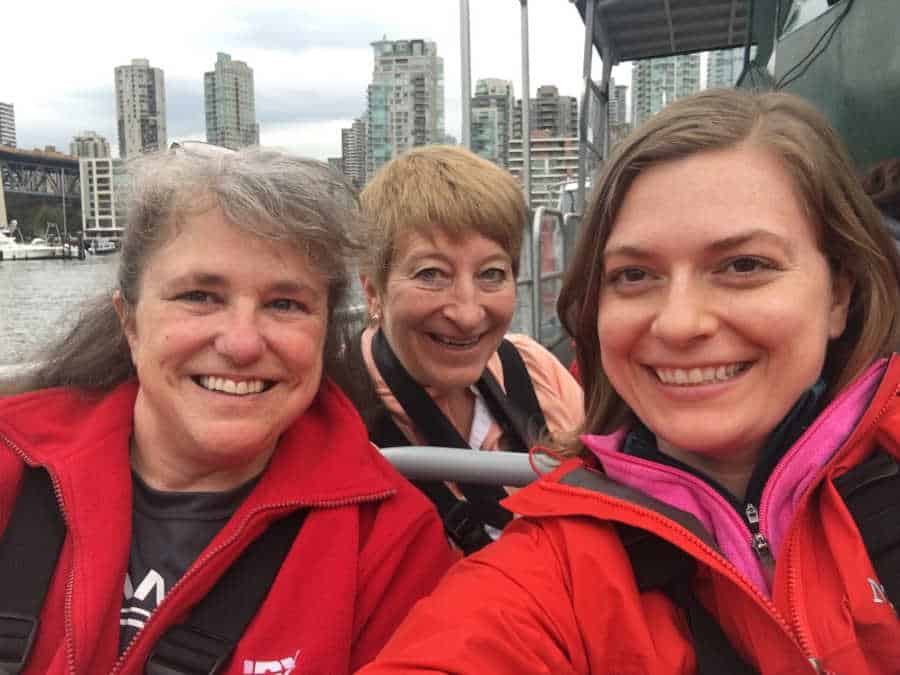
After you leave the dock, the captain of the boat drives you into the bay to find the whales. During this portion, the boat is fast and it gets cold (and a little wet). It takes awhile (~45 min), but it was super fun!
Once you get to an area where the orcas frequent or see orcas along the way, the captain slows down the boat. Without the wind, it is warmer and you can enjoy watching the orcas.
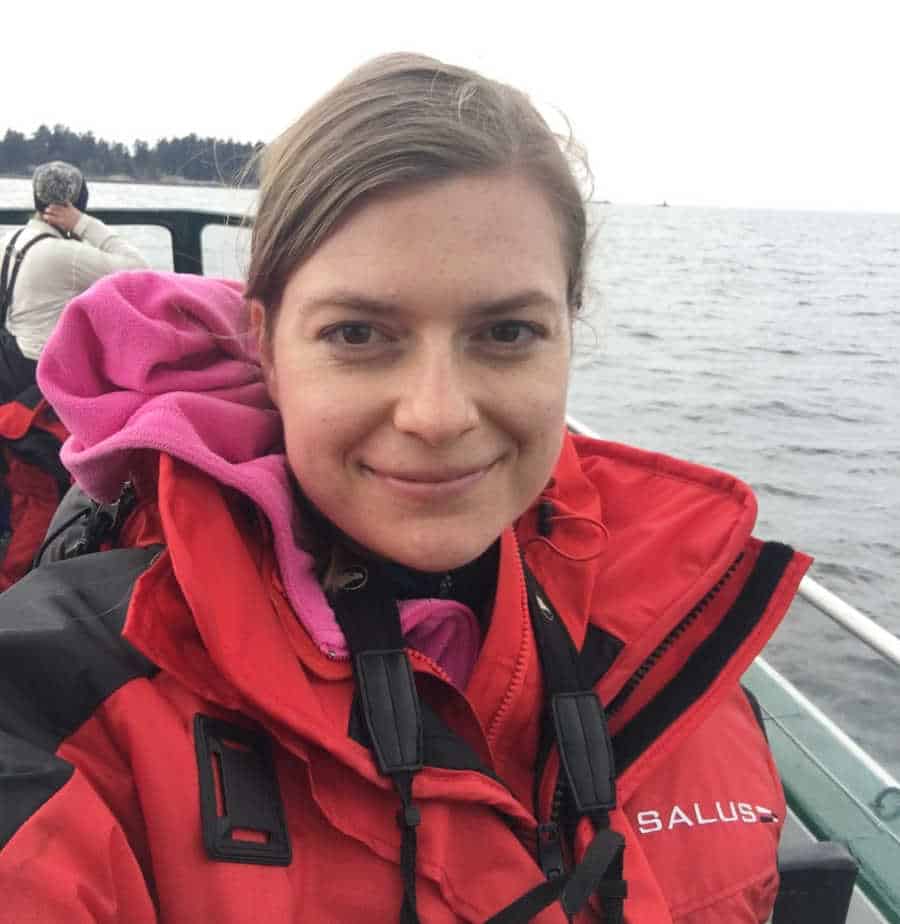
Seeing the Orcas!
We saw orcas easily and right away once we were in the right area. At first they were far away, but as you can see from the rest of the photos, we got to see them up (very) close.
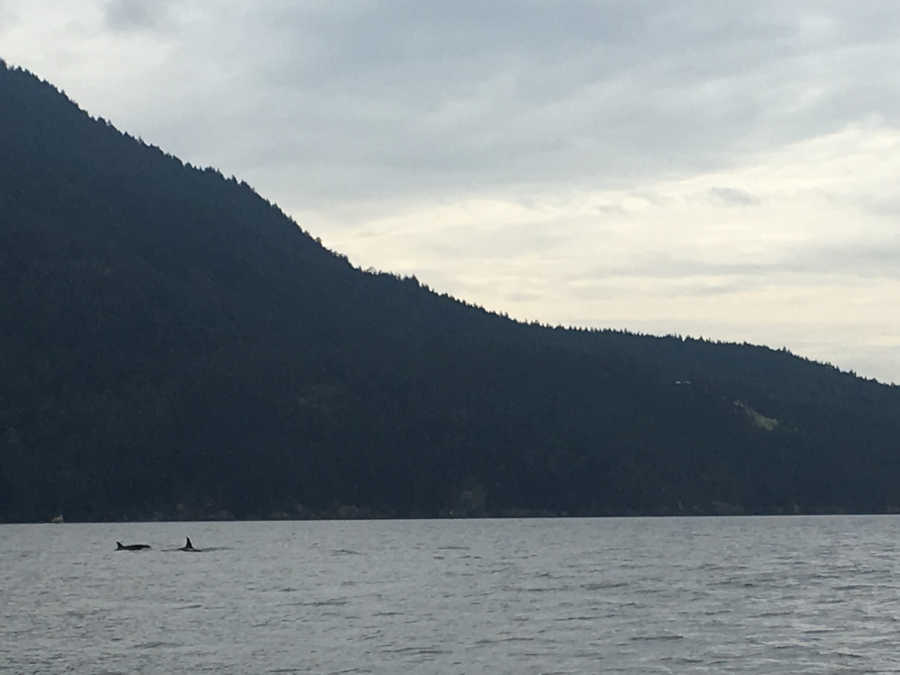
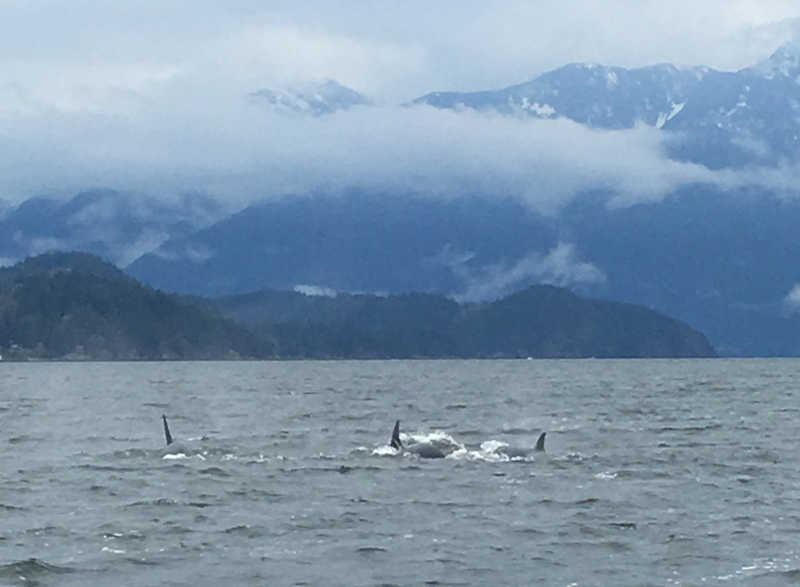
The important thing was that we let the whales decide how close they got to us. Wild Whales Vancouver follows the Marine Mammal Protection Act in the US, which states you have to stay 100 m away from the whales. However, the orcas can choose to come close to you!
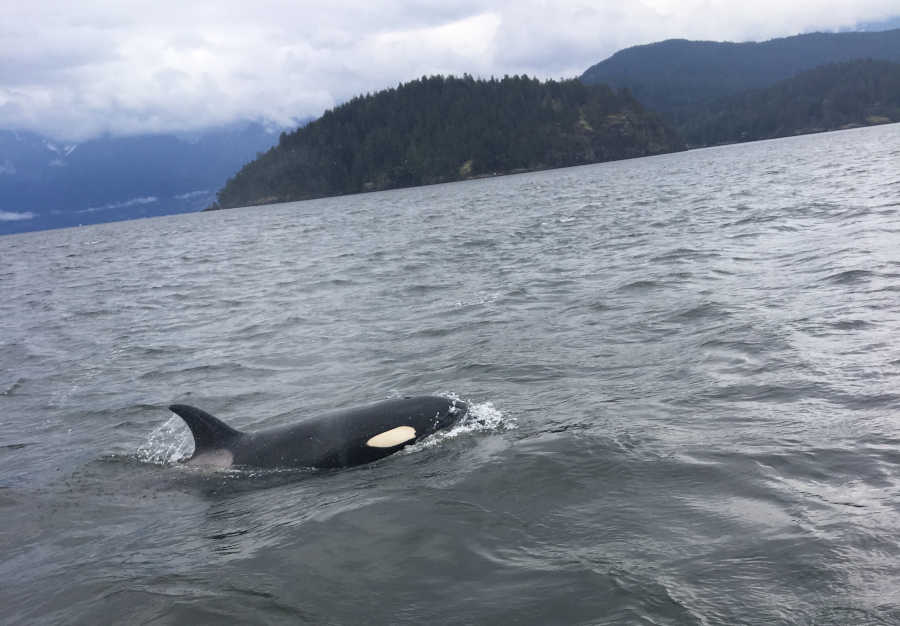
Once we saw the orcas, the captain turned off the boat and we watched. The whales go underwater for minutes at a time, so they might seemingly disappear, but the exciting part is you will never know where they will pop up. We were super lucky and at three different times, the whales swam just meters away from our boat!
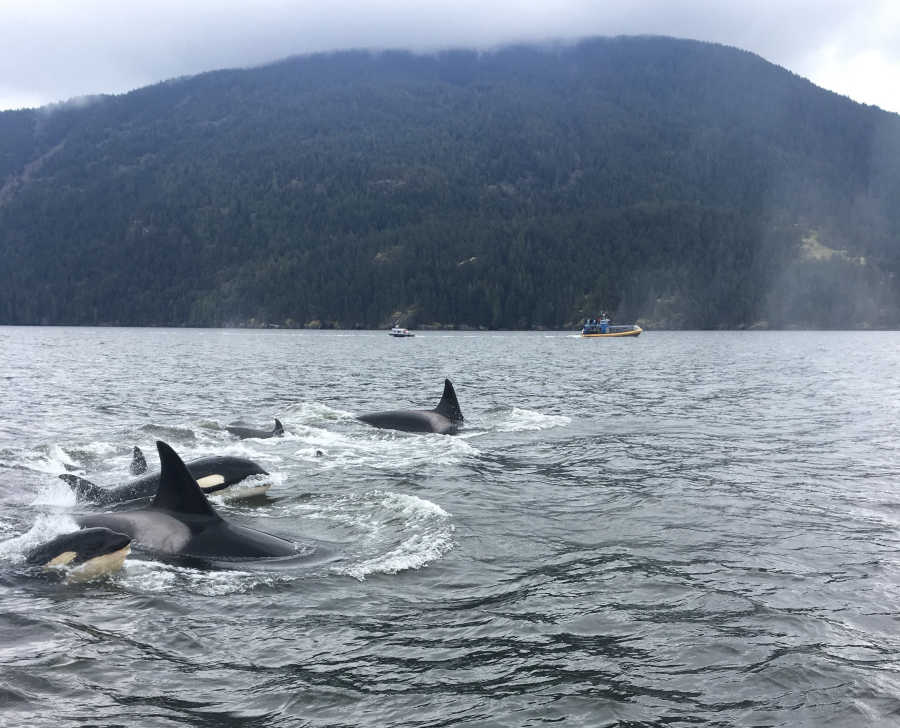
I have some photos to show how close they got to us, but when they were closest, I put my phone down. I didn’t want to be watching the whales through my camera. All of these photos were taken with my camera on my iPhone.
What I also loved about Wild Whales Vancouver was the educational component of the tour. The staff was very informative and talked to us in depth about orca research. I found it information, even as a wildlife biologist. The orcas can be identified individually through nicks and tears on their dorsal fin so scientists track them over time to learn about their behavior and ecology. We saw Stanley who had a dorsal fin approximately 6 ft tall. Stanley was in a group that had a super cute baby!
Orcas, like elephants live in matriarchal fission-fusion societies. The oldest grandma leads the pod. The group we saw was a transient pod. These groups have been seen near Alaska also. I learned they have become more frequently seen around Vancouver because of increased available prey (harbor seals).
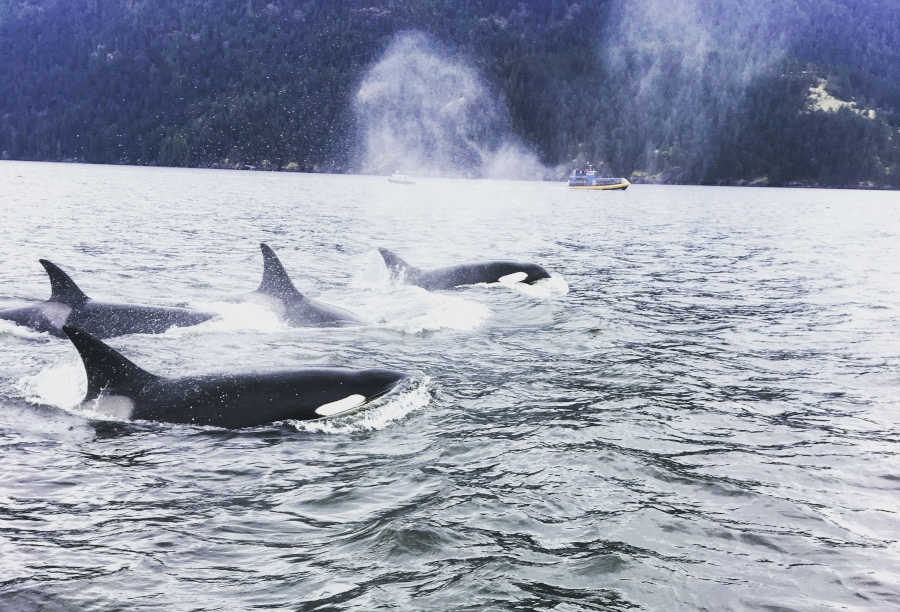
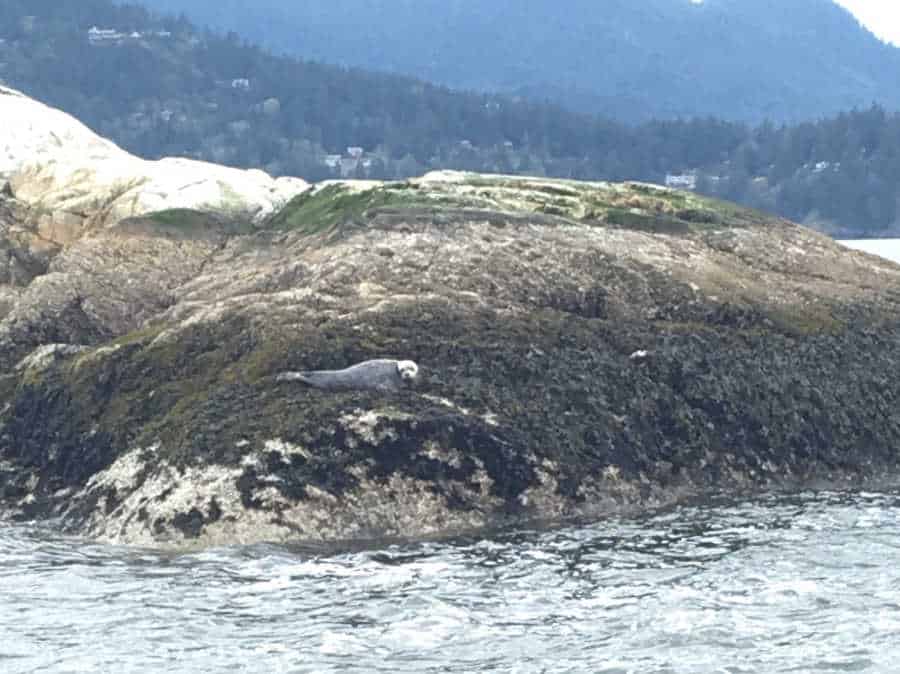
If you ever have the chance to participate in orca ecotourism, I highly recommend it. It was one of the best wildlife experiences of my life! Don’t forget to do your research and ensure that the company you choose is ethical to wildlife.
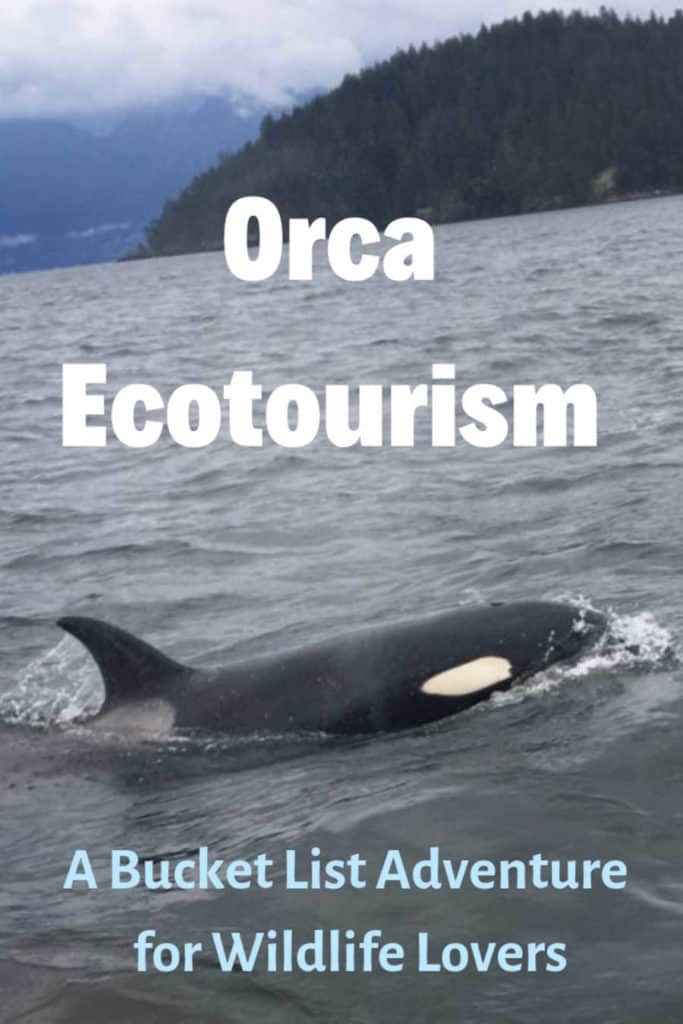
Love this post? Share it with friends!

